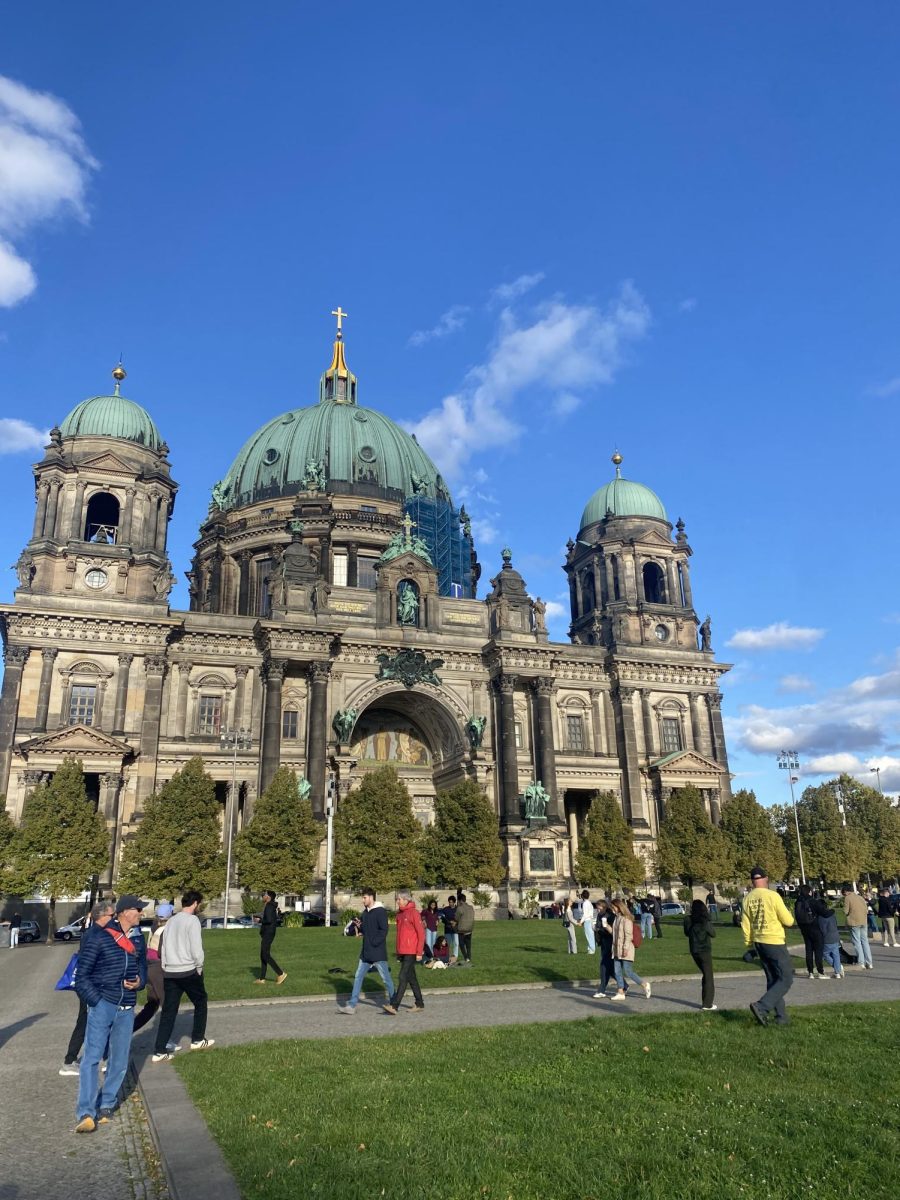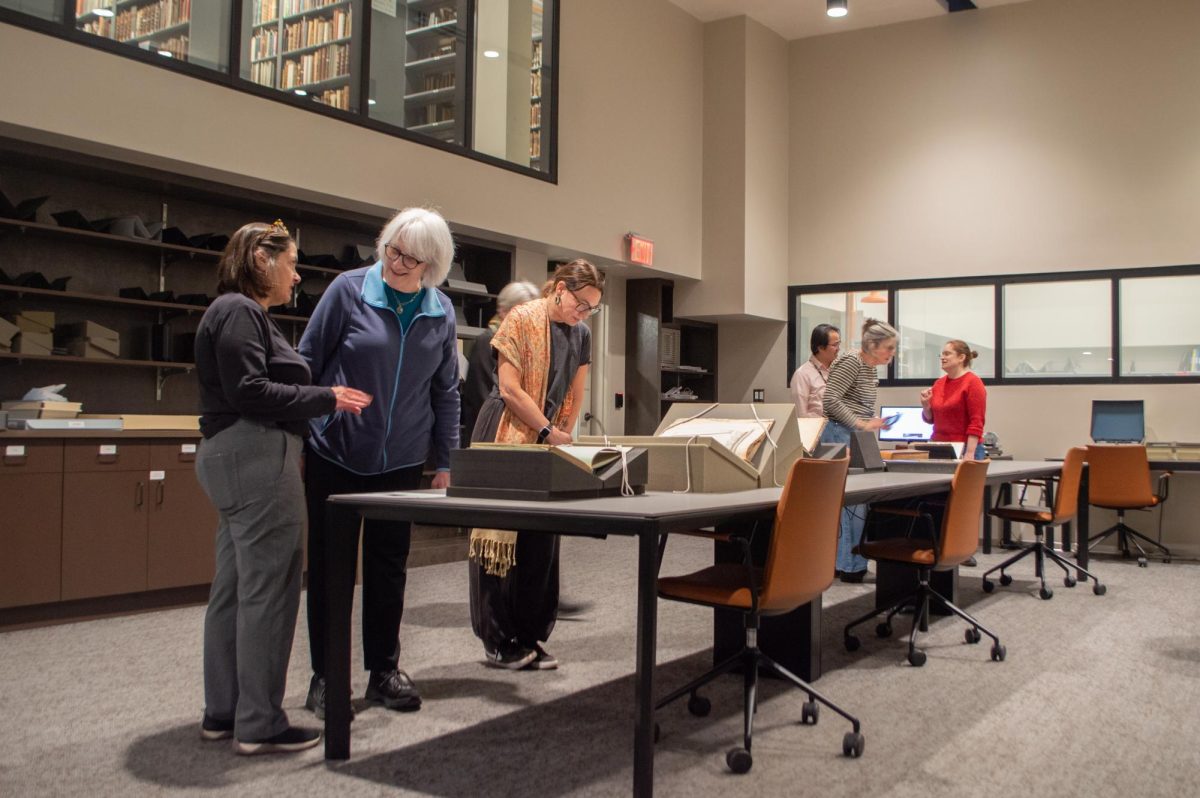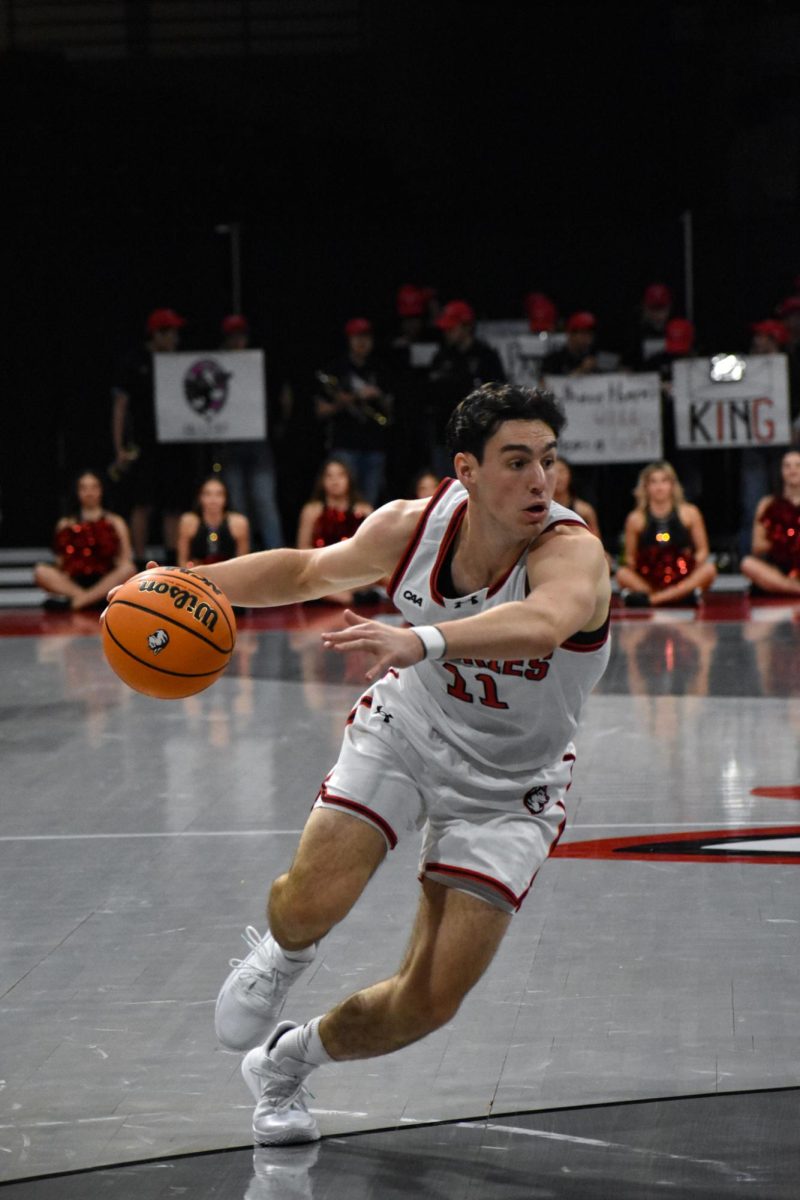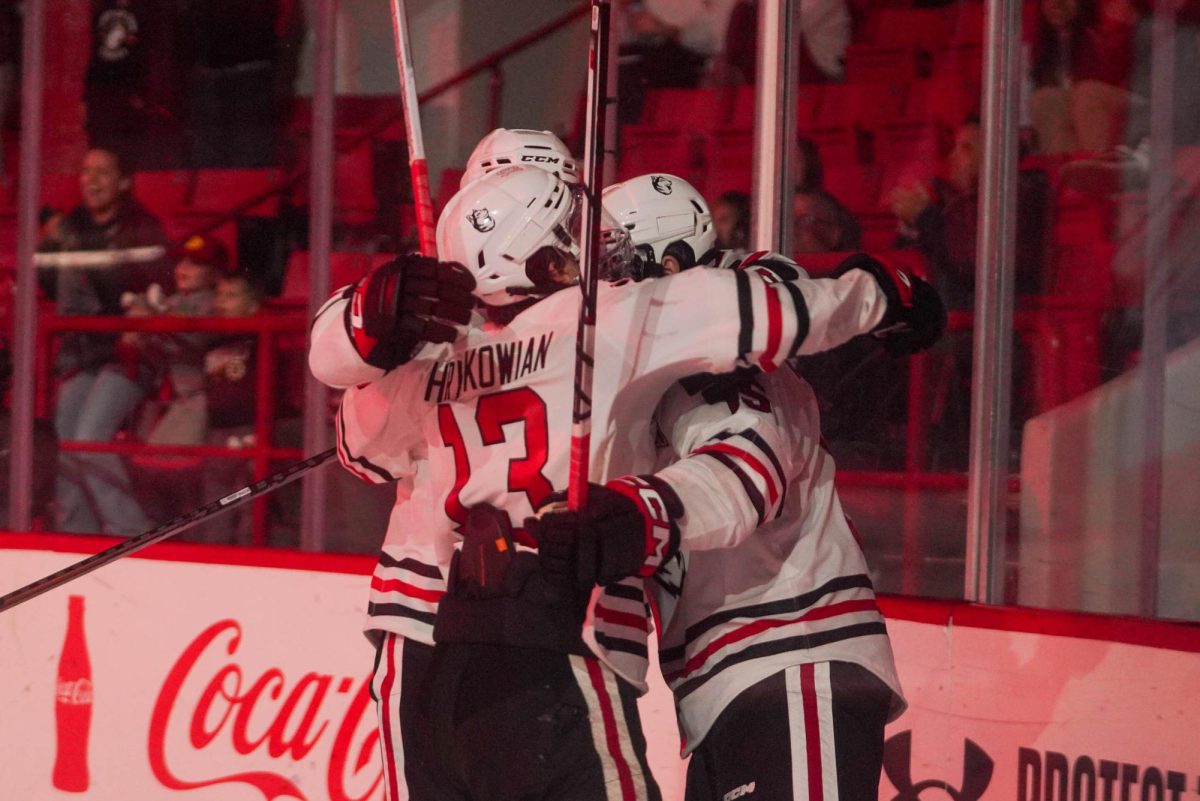
By Quinn Bott, News Correspondent
Which brand of diaper has the best absorbency? What brand of condom has the most durable latex? Will Red Bull make a plant grow faster than water? The middle and high school students who presented their research in the Cabot Cage on Friday and Saturday for the 64th Annual Boston Public Schools Citywide Science Fair had the answers.
The results: Choose Huggies and Trojan, but don’t water your plants with energy drinks.
A colorful array of experiments including windmills, rockets and jars of unidentifiable liquids decorated long rows of tables where more than 350 students presented for judges and each other. One curious creation was a door-sized case made of wood and Plexiglas that enclosed 157 aluminum cans stacked together in rows and painted black. The contraption captured energy from winter sun to heat the air in the cans, which rose into the student’s home through a vent. She showed a 20 degree difference and savings on her family’s heating bill.
Projects varied from “Exploring the Viscosity of Slime” to the classic “Which Household Liquid Cleans Pennies Best?” A project called “Jamaica Pond: The Beautiful” tested the quality of water and soil from various areas of the Jamaica Plain landmark. Another student made her own soy-based crayons and studied the negative environmental impact of traditional ones.
Olive Tang, a junior at Boston Latin School, won first place in many categories including highest overall score with her biomedical project titled, “Characterization of Mice Fibroblast Cell Adhesion to Osteopontin.” Tang began developing her project two summers ago, during an internship at the Forsyth Institute and said she is interested in pursuing medicine.
The best part of the science fair is the judges,” she said. “Their suggestions are always very helpful.”
Sherry Wu, also a junior at Boston Latin, won the American Society of Microbiology award for her project on nerve regeneration. She did her research throughout her internship in a neurosurgery lab at Children’s Hospital, Boston.
“Jokingly, I’d say my favorite part of my project was counting cells,” Wu said. “But working with my mentors was really the best part; they’re amazing.”
Through sponsorships from companies like EMC Corporation and Genzyme, student winners received badges and cash prizes, as well as an opportunity to move on to the state fair. Tang and Wu were just a few of the 30 to 35 winners who will present their work at the state fair in May.
But the fair wasn’t all teens and their parents. A handful of Northeastern students plugged in some hours volunteering, and said it was rewarding to see the products of young minds.
Justin White, a sophomore computer engineering major who does research on-campus at the Center for Subsurface Sensing and Information Systems (CenSSIS), volunteered at the science fair on Saturday and said he was impressed with the projects.
“I never could have done the kinds of research that these students are doing when I was in high school,” he said. “Now that I’m doing research in college, it’s even more impressive [to see] the kinds of things they have been able to do.”
Justin Alves, a sophomore nursing major who volunteered as a student judge, said he participated in the science fair when he was in school and enjoys the new perspective.
“I like listening to what the students have to say,” he said. “You can really tell when they have put in a lot of effort and take ownership of their project. I especially liked the projects where you could tell students completed them entirely on their own.”
A.R. Vivek, a retired microbiologist and software engineer at Massachusetts General Hospital, began judging the science fair 17 years ago when his two sons were students at Boston Latin School, and said there’s been a substantial rise in standards.
“Over the years the quality of presentations has improved greatly,” Vivek said, pointing to the increased university and private partnerships that allow students to do more. “There is no reason for Boston students to lag behind with all the opportunities available to today’s students, especially from [surrounding universities].”
Northeastern has hosted the citywide science fair for more than a decade since its move from the Boston Latin School. This year, the Center for STEM (Science, Technology, Engineering and Math) Education coordinated the fair.
Claire Duggan, assistant director for programs at the Center for STEM Education, said the science fair is just one of STEM’s partnerships aimed at improving Boston science education.
“The work of the center is focused on creating and implementing a standards based science and math curriculum through collaboration with our corporate and non-profit partners, and the Boston Public School district,” Duggan said.
Since the late 1980s, the STEM center and its precursors have been working to build research connections across universities and Greater Boston schools. As a participant in the Mayor’s Initiative, also known as STEP UP, five private universities: Northeastern, Harvard, Boston University, Boston College, and Tufts, each pledged $5 million over five years toward increasing involvement in science at struggling schools. Northeastern students volunteer in service-learning positions at two partner schools: Orchard Gardens K-8 School in Roxbury and the Curley K-8 School in Jamaica Plain.
Stephanie Crisp, a junior English and education dual major and co-op at the STEM center said she works mostly to get students at Northeastern involved with events like the science fair.
“We work with the Center for Community Service to provide opportunities for students to volunteer,” she said. “I was responsible for scheduling about a dozen [student] volunteers at the fair.”
At the science fair awards ceremony held in Blackman Auditorium, several figures of education addressed a crowd of parents, teachers and students. Boston Mayor Thomas Menino was scheduled to speak, but cancelled due to illness. Instead, Dr. Christos Zahopoulos, Executive Director of the STEM center and professor of engineering and education, expressed his appreciation for the “friendship of many years” between the school district and Northeastern.
Dr. Carol Johnson, the Superintendent of Boston Public Schools, addressed the students and shook hands with the young scientists as they accepted their awards. To the room full of both winners and runners-up, the Superintendant said, “Everyone who participates in the science fair is a winner.”








